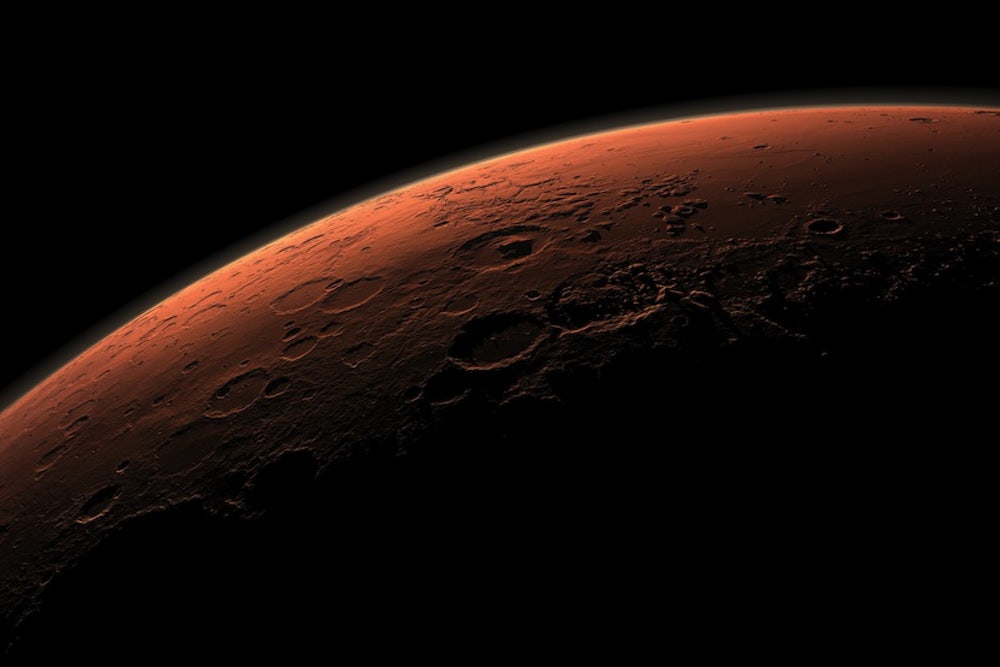Brandon Smith, a Kentucky state senator who happens to own a few coal mines, argued last week that Mars disproves global warming on Earth because “in academia we all agree that the temperature on Mars is exactly as it is here. Nobody will dispute that. Yet there are no coal mines on Mars. There are no factories on Mars that I’m aware of.” His bizarre argument, apparently, is that if Mars and Earth are the exact same temperature, then obviously carbon emissions don't cause global warming.
Let's start with the notion that the two planets are the same temperature. They aren't. Mars's average temperature is -81 degrees Fahrenheit—that is, 138 degrees colder than the Earth’s average.
Even if the planets were the same temperature, Smith's argument wouldn't hold water. And yet, he is among many climate change deniers who propagate the myth that Mars has global warming—thus disproving, in their minds, the 97 percent scientific consensus that human activity is warming the Earth.
In 2009, Republican Dana Rohrabacher, a senior member of the House Science and Technology Committee, said that ice caps are “melting on Mars, too!” The logical conclusion Rohrabacher drew is that ice caps melt “because of solar activity. Not because of the activity of human beings.” Writing in the National Review in 2007, former Republican Senator Fred Thompson noted that "scientists are telling us that Mars is experiencing its own planetary warming"—likely a reference to a debunked study by a Russian scientist—and then quipped, “This has led some people, not necessarily scientists, to wonder if Mars and Jupiter, non signatories to the Kyoto Treaty, are actually inhabited by alien SUV-driving industrialists who run their air-conditioning at 60 degrees and refuse to recycle.” But Fox News took the cake in 2012 with its own Mars-themed theory of global warming: “Is it solar flares, is it the Mars wobbles, is it the earth’s axis tilting in a different way?”
Scientists have found no solid evidence that Mars is warming. Granted, the studies done thus far have been extremely limited, based on a few measurements over a short time period, especially compared to the extensive measurements of Earth’s climate. But even if Mars—which is 140 million miles from Earth, with a different orbit and a carbon-dioxide atmosphere that’s more susceptible to external changes—were warming, that would hardly relieve humans of responsibility for the alarming rise in Earth's temperature, which happens to coincide exactly (to use Smith's word) with the rise in our burning of fossil fuels.
